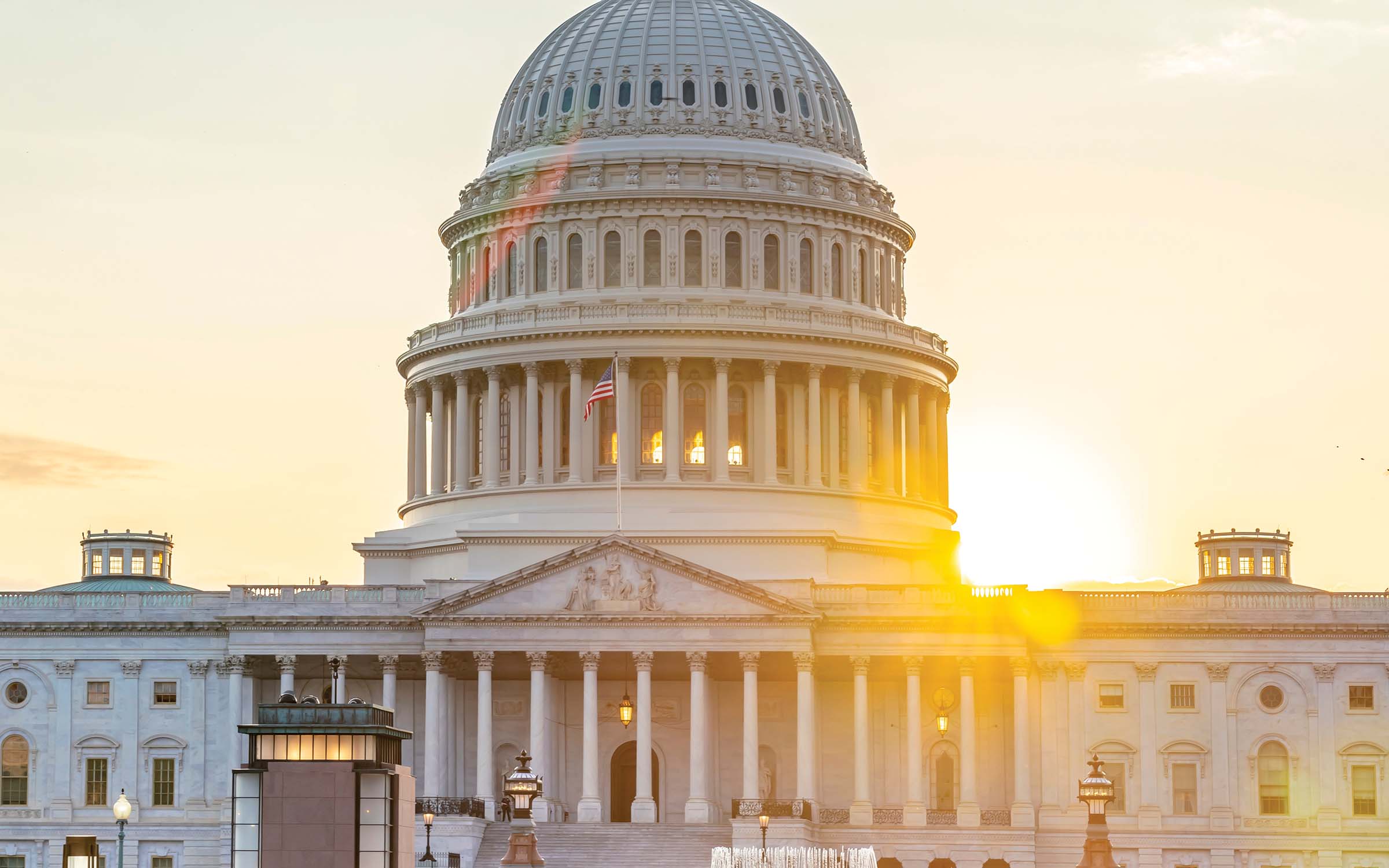It’s still early in 2024, but ICBA’s legislative advocacy team is already making inroads on our key legislative priorities.
With a full slate of issues requiring our attention, here are a few key issues ICBA will advocate for in 2024:
Banking cannabis-related businesses
After making substantial headway in 2023 with the Senate Banking Committee voting to advance the bipartisan Secure and Fair Enforcement Regulation (SAFER) Banking Act (S. 2860), ICBA will push for a full Senate vote and will also press House members to take up the bill. The previous version of the bill, the SAFE Act, passed the House seven times in past sessions of Congress.
This bipartisan legislation would create a safe harbor from federal sanctions for financial institutions serving cannabis-related businesses in states where cannabis is legal. It would prevent federal banking regulators from threatening or limiting a
bank’s deposit insurance, downgrading a loan, prohibiting or discouraging the provision of banking services, or taking any other prejudicial action on banks solely for serving a cannabis-related business. Passing the bill would reduce a serious
public safety risk, as many cannabis businesses are currently forced to do business almost exclusively in cash.
Tax incentives for rural America
ICBA is a staunch advocate for rural community banks and will continue to push for passage of the Access to Credit for our Rural Economy (ACRE) Act (H.R. 3139, S. 2371). ACRE was introduced in 2023 by Sens. Jerry Moran (R-Kan.) and Angus King (I-Maine) in the Senate and Reps. Randy Feenstra (R-Iowa) and Wiley Nickel (D-N.C.) in the House. The bill would create a tax exclusion for interest income on farm real estate and rural mortgage loans, allowing community banks to lower loan rates and more efficiently serve these borrowers. It would also provide relief for loans secured by agricultural and aquaculture real estate or by rural single-family homes that are the borrower’s principal residence and below the value of $750,000 in towns with populations of less than 2,500.
The ACRE Act, the successor to the Enhancing Credit Opportunities for Rural America (ECORA) Act of the previous Congress, would promote prosperity in rural economies, especially among young, beginning and small farmers and ranchers who are trying to obtain
loans in this higher interest rate environment.
As constituents and community influencers, you are uniquely positioned to explain the real-world impact of these legislative issues on your bank, your customers and your community.
Closing the ILC loophole
The separation of banking and commerce is essential to the safety and soundness of the financial system and must be protected. This core tenet of the nation’s financial system prevents concerns about impartial allocation of credit, conflicts of interest, a dangerous concentration of commercial economic power, and the extension of the federal safety net to commercial interests.
That’s why ICBA will continue to push for the closure of the industrial loan company (ILC) loophole, which large technology companies like Rakuten have tried to exploit. ICBA wants to close the ILC loophole to ensure that large companies like Amazon, Meta and Google can’t avoid the legal prohibitions, oversight and restrictions on commercial activities under the Bank Holding Company Act that apply to traditional banks.
Through this loophole, these companies could enjoy the privileges of a bank without the same accountability. Allowing entities that engage in diverse, non-financial, commercial activities to own a lightly regulated bank poses a systemic threat to the
financial system, and it must not be allowed.
Opposing new interchange restrictions
Community banks serve consumers of all economic levels with transparent and sustainable payment card programs, ensuring convenience and access to the digital economy. Interchange income helps cover the cost of these programs, including popular rewards programs. Without it, rewards and credit programs would have to be discontinued, reducing consumer choice and access to popular card benefits.
ICBA opposes the Credit Card Competition Act (S. 1838 and H.R. 3881) (the “Durbin-Marshall Amendment”), which would expand interchange restrictions by creating new credit card routing mandates. This would end up forcing all banks to subsidize
costly system-wide changes that would put customer data at risk.
Add your community bank’s voice to our advocacy agenda
There are many more issues ICBA’s advocacy team will address, including CFPB’s 1071 rule, opposing bad central bank digital currency (CBDC) and nonbank stablecoin proposals, and supporting a robust Farm Bill. While ICBA’s staff and leadership will be focused on advocating for these issues, we need community bankers like you to share your stories and engage with policymakers.
As constituents and community influencers, you are uniquely positioned to explain the real-world impact of these legislative issues on your bank, your customers and your community.
The ICBA Action Center is a great place to start. It provides sample letters you can send to congress. Importantly, you can personalize the letters to maximize the impact. Or you can reach out to your member of congress and schedule a meeting with them or one of their staff.
Whatever approach you choose to take, don’t sit on the sidelines. Achieving our legislative goals in 2024 requires all hands on deck!






